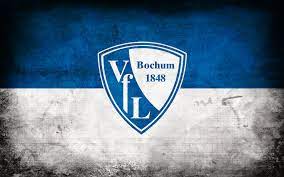Feyenoord Football Club, based in Rotterdam, Netherlands, has carved its name into the annals of football history. With a rich heritage and a passionate fanbase, this club has transformed itself from humble beginnings into a powerhouse of Dutch football. This blog post delves into the journey of Feyenoord, exploring their rise to prominence, the impact on their community, and the vibrant culture surrounding the club 33win.
The Historical Roots of Feyenoord Football Club
Feyenoord’s journey began in 1908 when the club was established as Wilhelmina in Rotterdam. The name was changed to Feyenoord in 1912, named after the district where the club was founded, and thus began a saga filled with passion, triumphs, and challenges.
Early Years and Development
Feyenoord Football Club’s early years were characterized by a local focus, playing friendly matches against nearby clubs. The club soon joined the national leagues, which set the stage for a more competitive environment.
During the initial decades, the team struggled to gain recognition amid larger clubs in the region. However, what stood out was the unwavering support from the local community, which laid a solid foundation for future growth.
As Feyenoord navigated through these formative years, they developed a unique identity that resonated with the working-class ethos of Rotterdam. The club became synonymous with resilience and hard work, which would later be reflected in their playing style.
The Golden Era
The 1960s marked a significant turning point for Feyenoord, as they emerged as one of the dominant forces in Dutch football. Under the guidance of legendary coach Ernst Happel, the club not only flourished domestically but also made substantial strides in Europe.
Feyenoord claimed their first Eredivisie title in 1961, paving the way for further successes. The pinnacle of this golden era was undoubtedly their victory in the European Cup in 1970, where they defeated Celtic in the final. This triumph established Feyenoord as the first Dutch club to win this prestigious trophy, accentuating their status on the continental stage.
The impact of this era reverberated across generations, instilling a sense of pride and ambition within the club and its supporters. It showcased the potential of Feyenoord to compete at the highest levels of football.
Challenges and Resilience
Despite achieving remarkable success, Feyenoord faced numerous challenges throughout the late 20th century. Financial difficulties and management issues threatened the stability of the club.
However, what sets Feyenoord apart is its capacity to rebound from adversity. The dedication of the fanbase and the club’s commitment to nurturing homegrown talent played crucial roles in overcoming these obstacles. This resilience forged a deep bond between the club and its supporters, who rallied during tough times, showcasing the power of community in the face of adversity Feyenoord Football Club.





